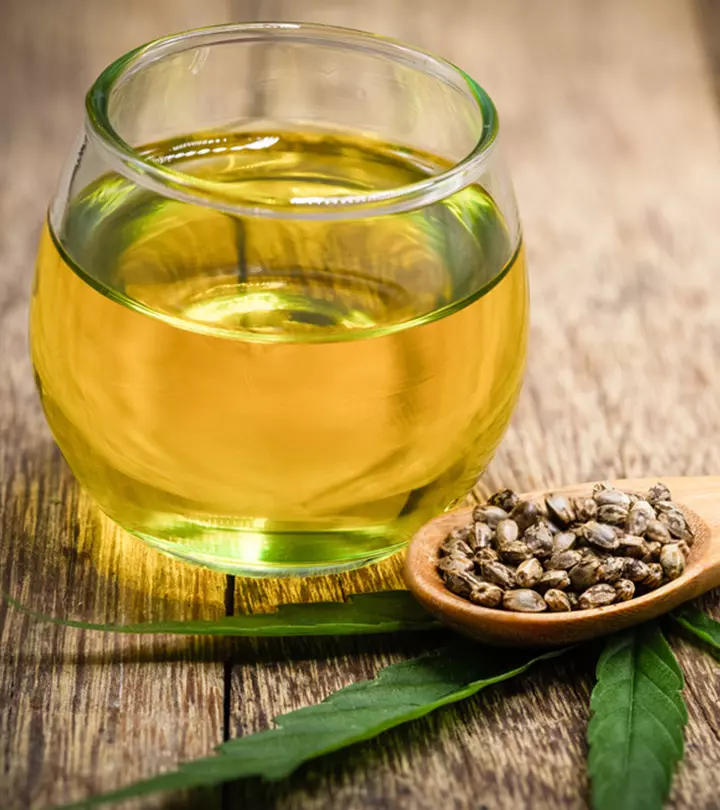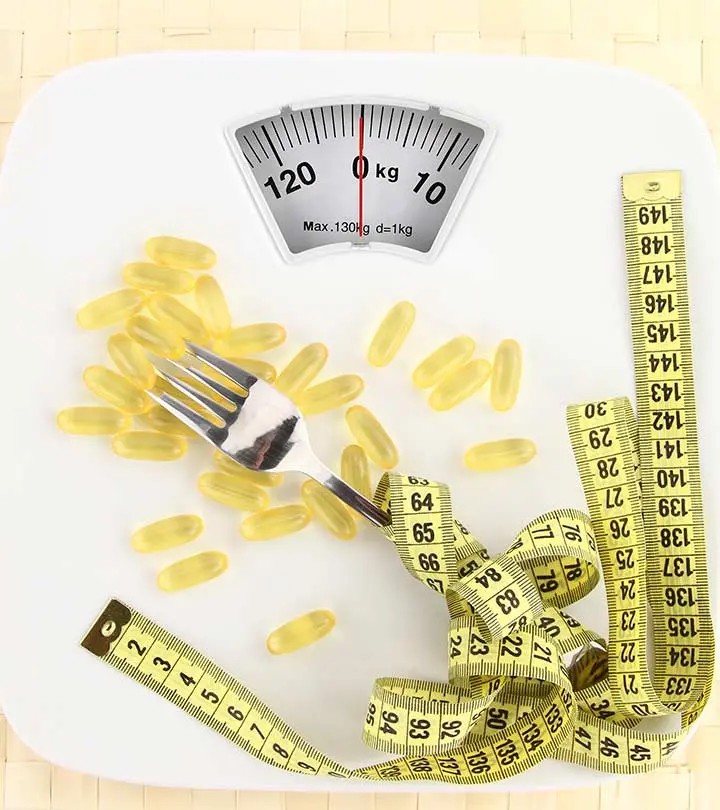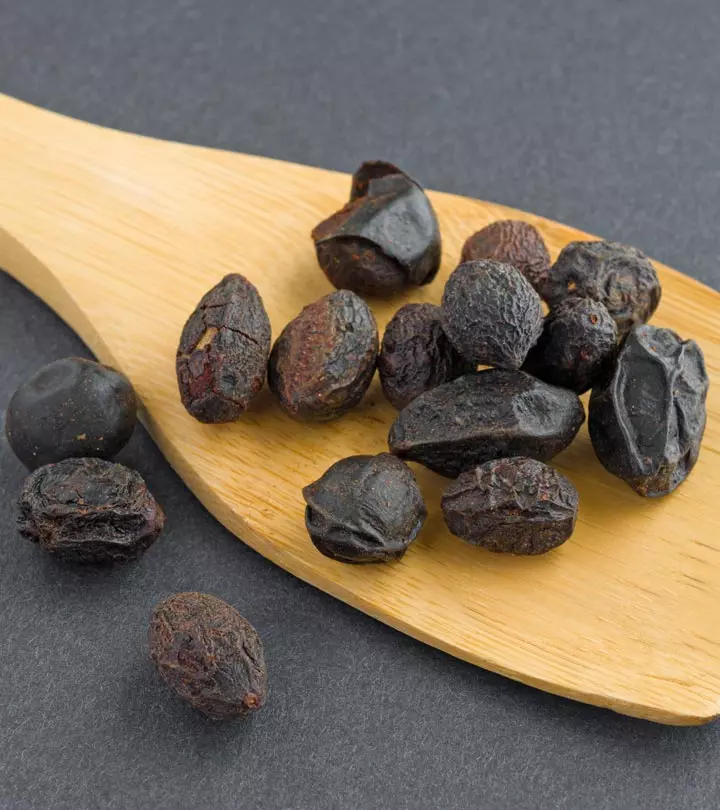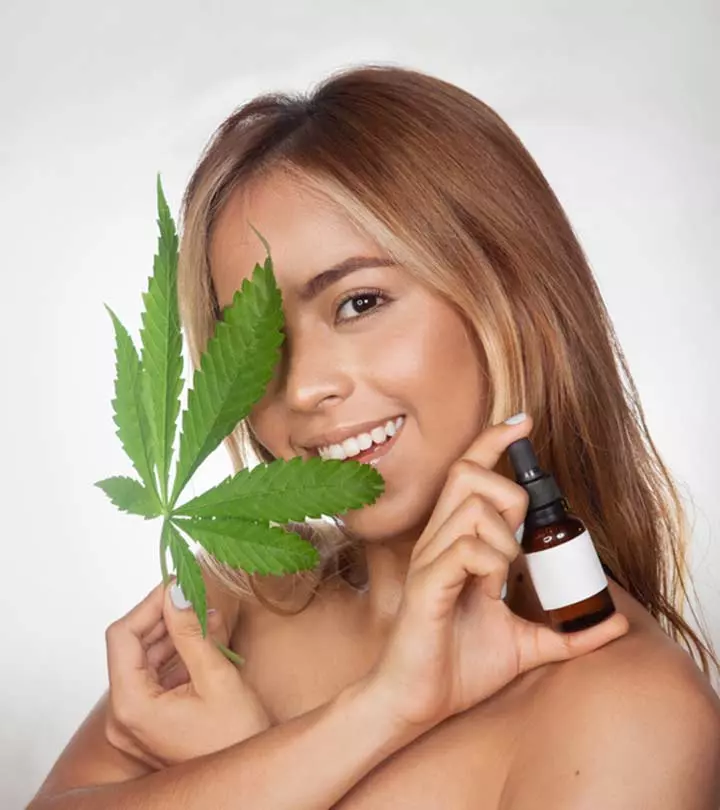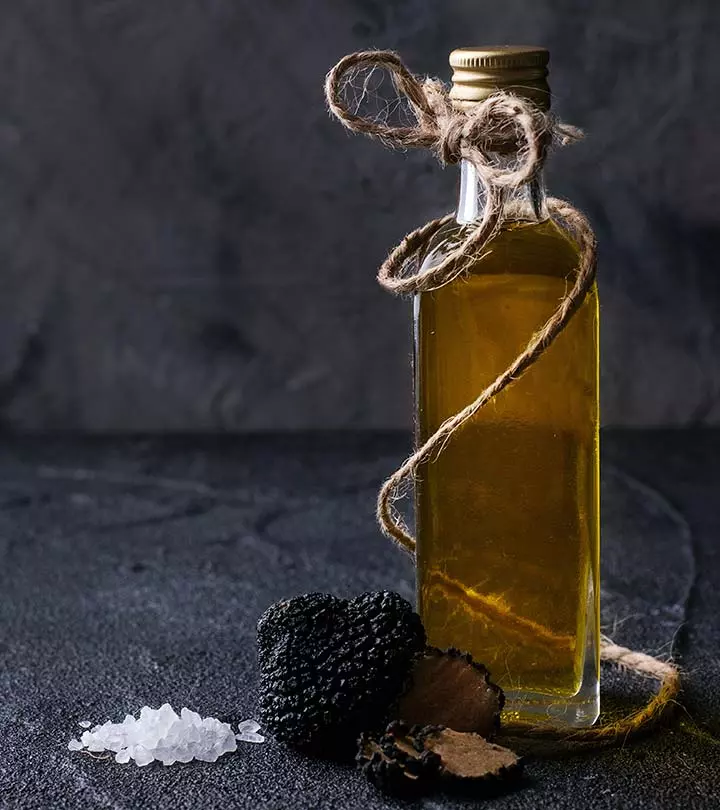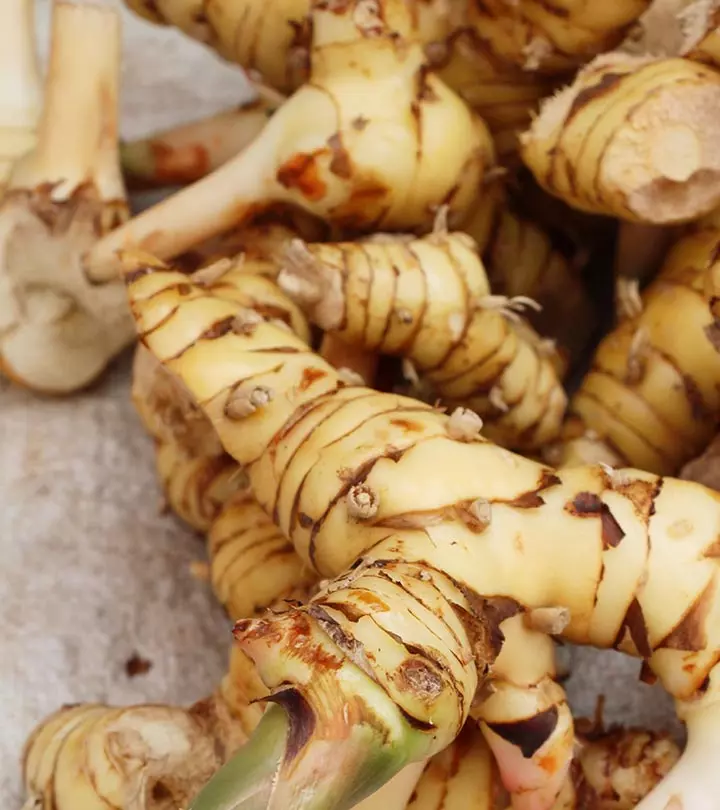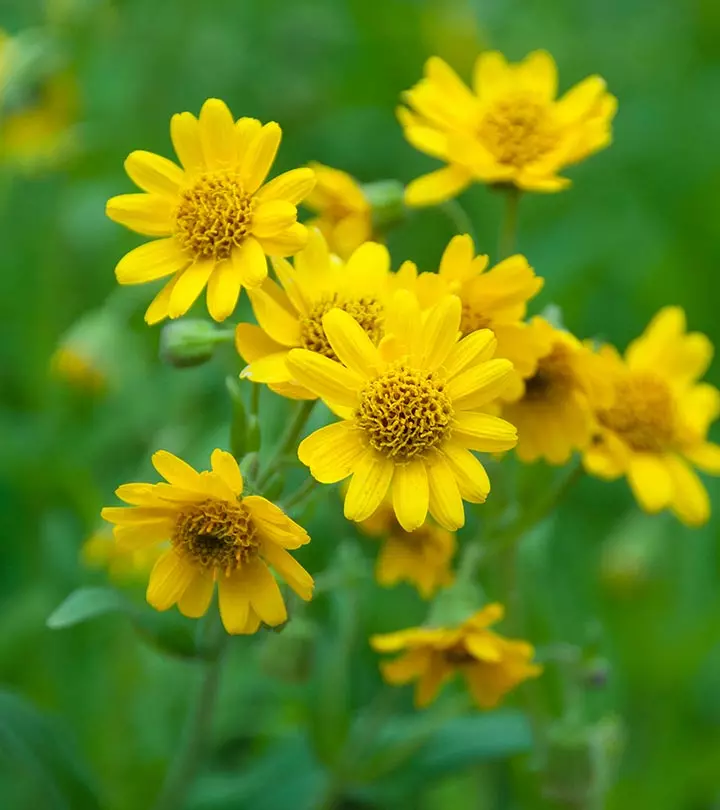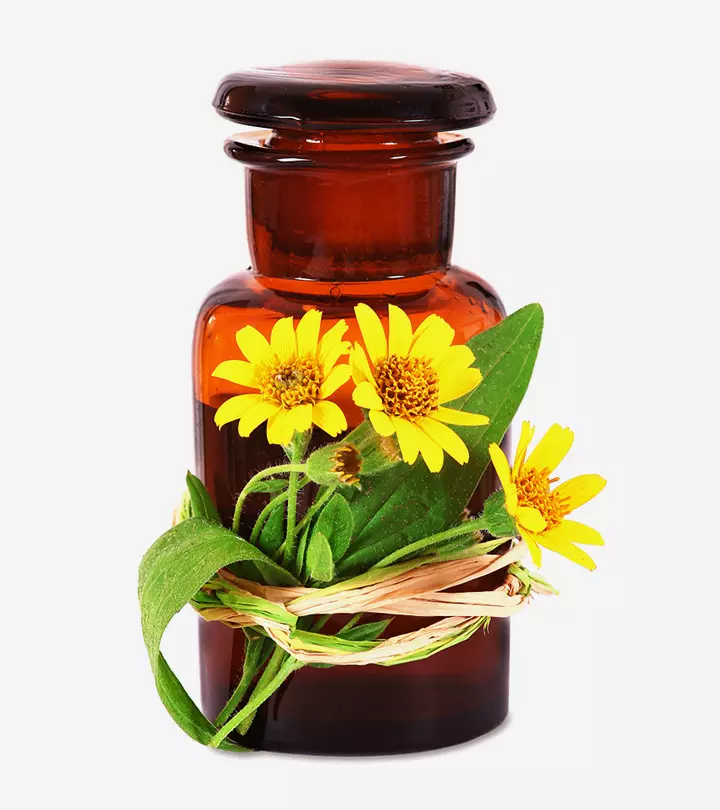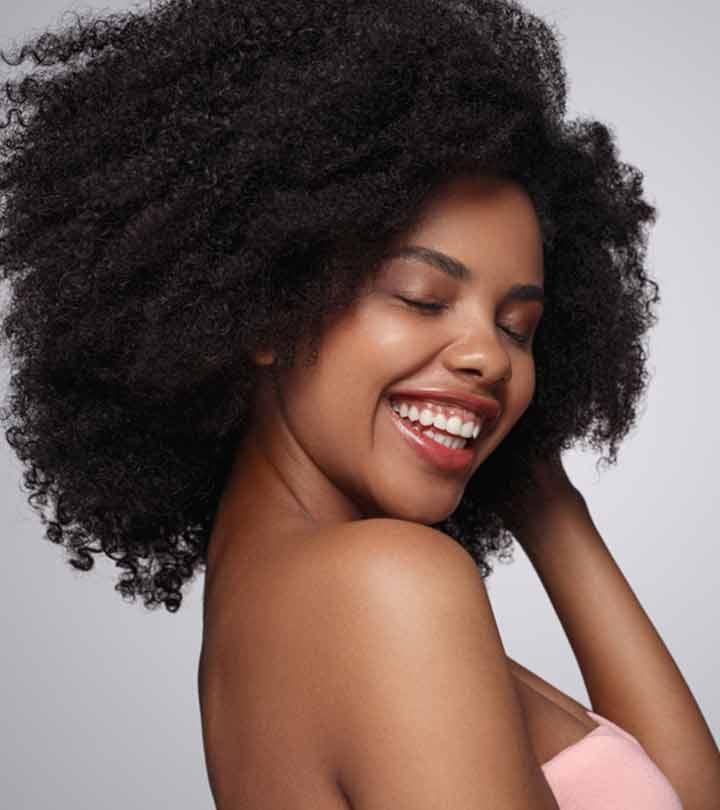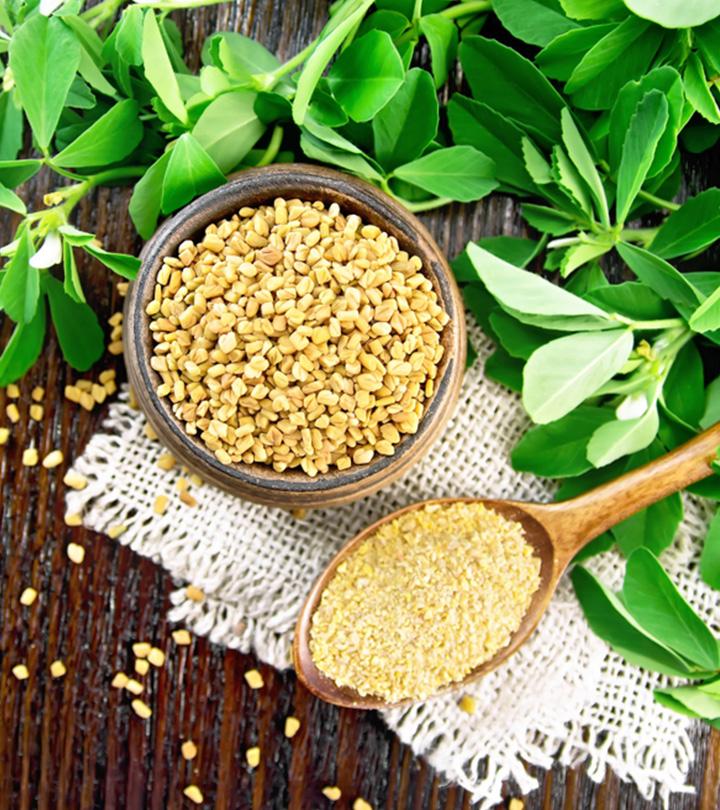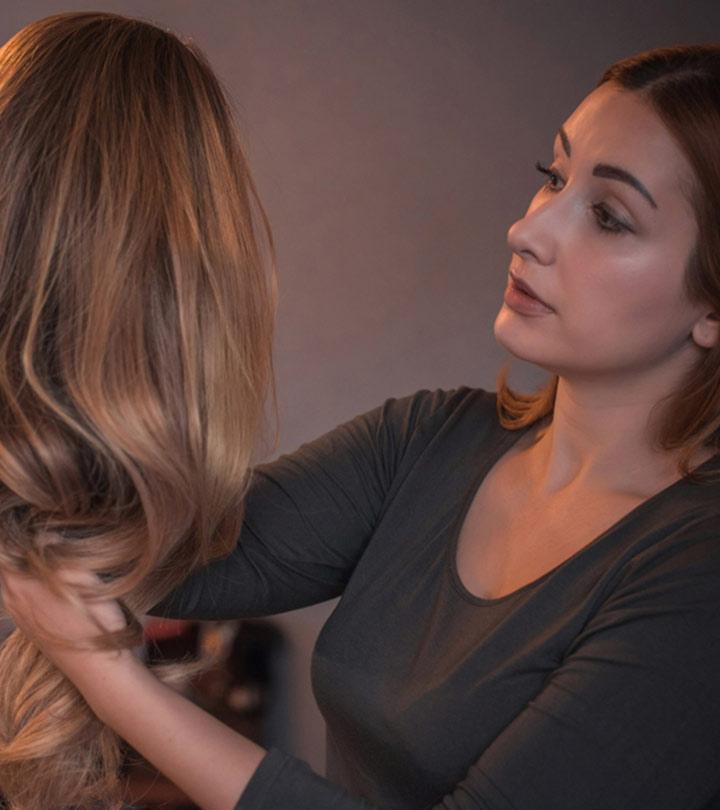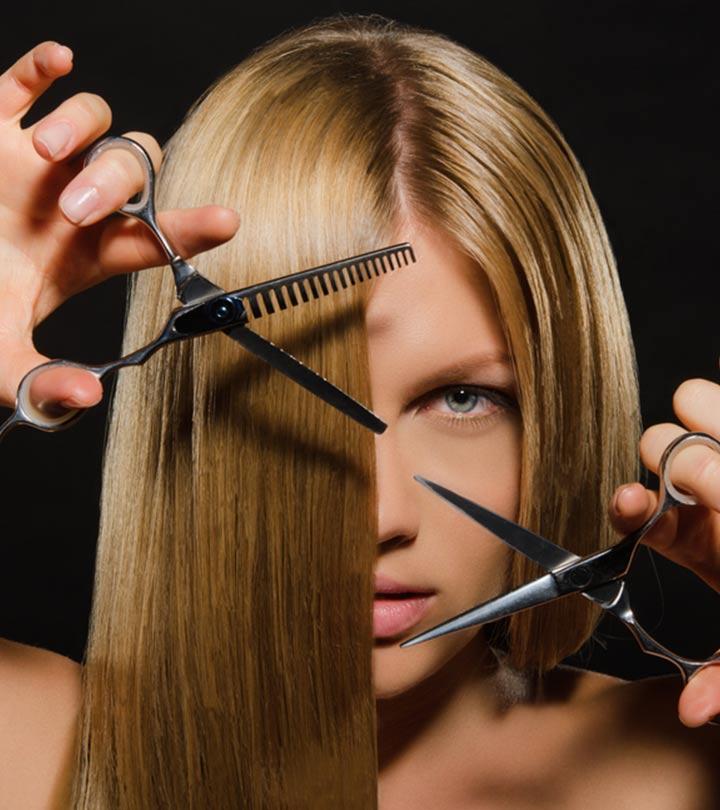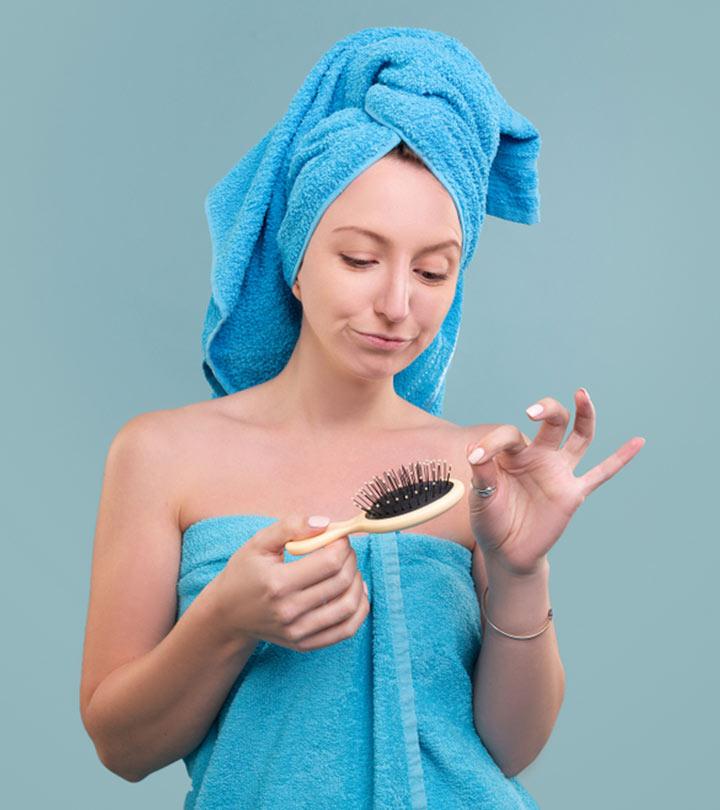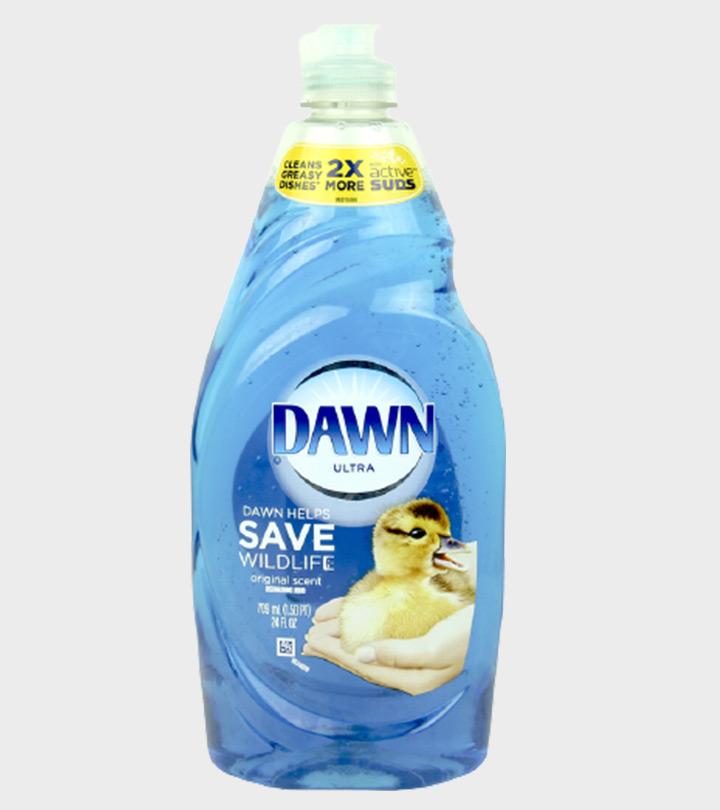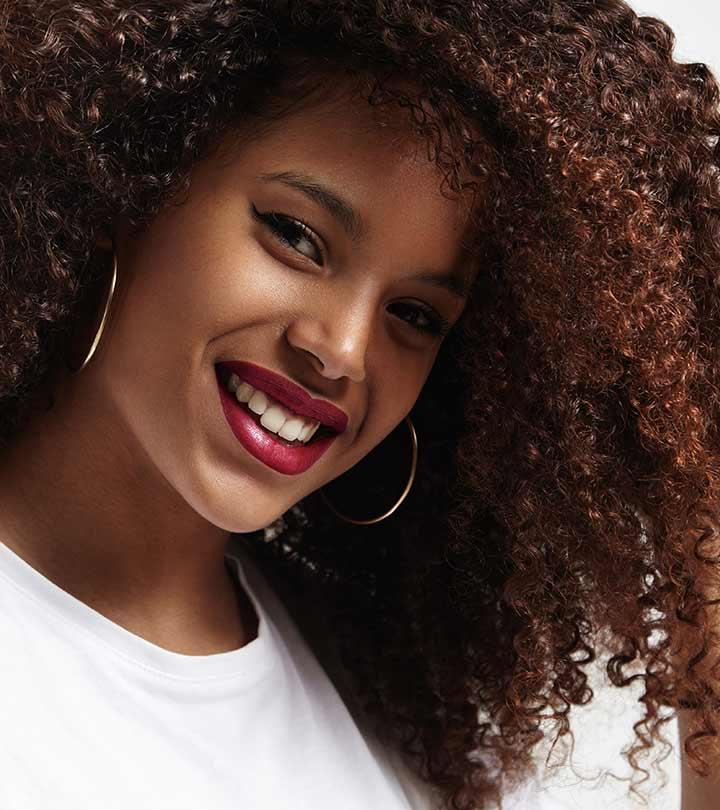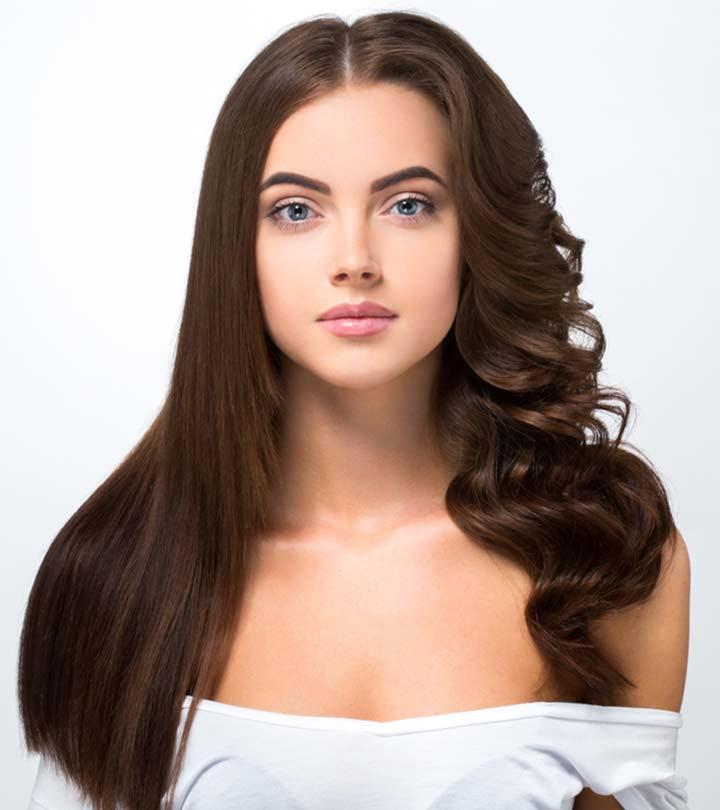CBD Oil For Hair Loss: Benefits And Dosage
Unlock the transformative powers of CBD oil in combating hair loss for a lush, thriving mane!
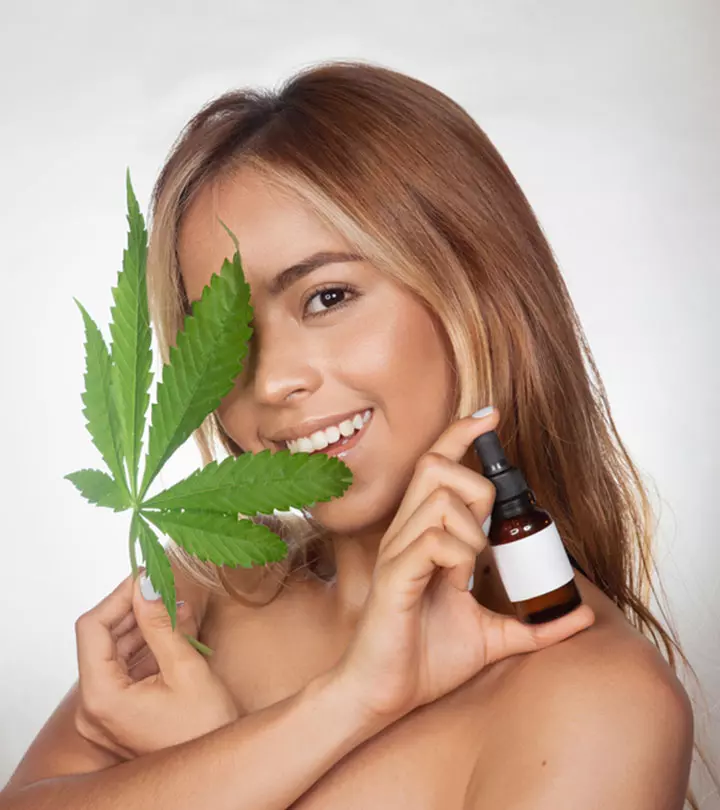
Image: Shutterstock
CBD oil for hair loss is touted as an effective solution for stopping excessive hair fall. CBD products have an estimated market value worth about a billion dollars, and you can find it everywhere – right from lip balms to facial serums and hair oils.
CBD oil has anti-inflammatory properties. In addition, it helps reduce oxidative stress and regulate multiple processes in your body that directly impact your hair health. In other words, it can promote a suitable environment to induce healthy hair growth. If you are keen to try CBD oil for hair loss, read this article to understand how it works and ways to use it. Read on.
In This Article
What Is CBD Oil?
CBD stands for cannabidiol, a non-psychoactive chemical (cannabinoid) found in the cannabis plant. CBD oil is mixed with carrier oils and used for different purposes and in products like soaps, snacks, dog treats, tinctures, and lotions.
While CBD or cannabidiol is a component extracted from the hemp plant (cousin of the marijuana plant), it does not cause dependency or get you high. CBD is often used to relieve health issues, such as seizures, nausea, anxiety, and pain (1), (2).
A cross-sectional study involving 2,409 individuals revealed that 62% of CBD users use it to treat medical conditions like pain, anxiety, and depression, while 36% of them said that CBD treats their medical condition very well.
CBD oil is often used for minimizing hair loss. While it cannot directly treat or reduce hair loss, it can manage the underlying causes that may trigger hair loss. In the next section, find out how CBD oil may help you deal with hair loss.
Benefits Of Using CBD Oil For Hair Loss
1. Helps Regulate Hormones
Your body needs insulin to process glucose, and insulin resistance impairs this function, leading to hormonal imbalance (3). Insulin resistance is also linked to androgenic alopecia or pattern baldness (4). CBD may also help control insulin levels (5). It can also help regulate diabetes and minimize hair loss.
2. Reduces Stress
Stress can trigger hair loss (6). CBD can help treat stress, anxiety, and related disorders (7). If you are going through periods of extreme stress, consult a doctor, and consider using CBD oil for hair loss.
3. May Promote Scalp Health
CBD has antibacterial and antimicrobial properties (8). This may help promote scalp health, keep your hair healthy, and minimize hair loss.
 Quick Tip
Quick Tip4. Contains Antioxidants
Oxidative stress can trigger androgenic alopecia and hair loss (9). Your body needs antioxidants to fight oxidative stress. CBD oil has anti-inflammatory and antioxidant properties (10). Thus, it may help fight oxidative stress.
5. Helps With Inflammation
Chronic inflammation is linked to male and female pattern hair loss (11). Cannabidiol has anti-inflammatory properties (10). Hence, it may help reduce inflammation and hair loss.
Cannabinoids, including cannabidiol, can help with immune system responses. They work well as an anti-inflammatory therapy and help regulate the immune system response (1). In cases of chronic inflammation, CBD oil can be considered as a treatment option.
Research is still underway to explore all the benefits of CBD. If you wish to use CBD oil, consult a doctor to determine your eligibility and the dosage. CBD oil can be used either topically or orally. Here are a few ways to incorporate CBD oil into your routine.
Different Ways Of Using CBD Oil For Hair Loss
1. Topical Application
You may buy CBD hair oils for massaging. Mix pure CBD oil with any carrier oil before application. Leave the oil on for at least 30 minutes before washing off with shampoo. You may also leave it on overnight and rinse the next day.
2. Ingestion
CBD oil is available in different forms, ranging from gummies and tinctures to capsules. Tinctures are taken under the tongue and then swallowed after a few seconds. Capsules should be taken at the same time regularly, and gummies have a slower effect. These are available in different concentrations. Use them as directed by your physician.
3. Vaping
If you don’t have a problem with vaping, this is the fastest way to consume CBD oil. People with chronic stress find vaping convenient, especially if they are caught up with a busy schedule. You can get vape pens and CBD oil cartridges.
Whatever method you choose, it is important to get the dosage right so that it is effective.
Dosages Of CBD For Hair Loss
As CBD oil is used for many health issues, the dosages vary.
Though there is no universal dosage for CBD oil, it is best to start with a small amount and observe how you feel. Over time, you can increase the amount as you get more comfortable with it. Consult a doctor for the right dosage for your underlying health issue.
For topical application, you may either follow the dosage instructions mentioned on the package or consult a doctor.
Before you go ahead and place an order for your CBD hair oil, be sure to know that you are picking a good product with quality ingredients.
 Quick Tip
Quick TipHow To Find The Best CBD Oil For Hair Loss
1. Check The Certification
Do some research on the brand, check its certifications, and read reviews on the internet to get an idea about its quality and efficacy.
2. THC Content
The FDA allows CBD derivatives that have less than 0.3% of THC content (12). Check your local statutes to understand what percentage of THC is allowed there before buying CBD oil.
3. Ingredients
Don’t just stop at THC content research all the listed ingredients to avoid adverse effects or allergic reactions.
If you intend to use CBD oil for hair loss, consult a doctor and understand how to incorporate the oil into your routine and the associated risks. It is because CBD oil can be used orally and topically. Depending on the hair issue, the usage method, dosage, and frequency may differ from person to person. CBD oil may not directly affect your hair health. However, it can help manage the symptoms of the underlying issue that is causing hair loss. Therefore, always work with your doctor and follow their instructions for better results.
Frequently Asked Questions
Does CBD block DHT?
CBD oil does not block DHT but can control the hormone regulation functions and help treat alopecia caused by hormonal changes (13).
Can I add CBD oil to my shampoo?
Yes, you can add CBD oil to your shampoo or conditioner. You can also buy CBD-infused shampoo or conditioner.
How much CBD oil should I add to my shampoo?
You may add 1 to 2 tablespoons of CBD oil to your shampoo.
Is CBD oil legal?
Yes, CBD oil is legal as long as it doesn’t contain more than 0.3% tetrahydrocannabinol (THC). While CBD oil coming from hemp is legal, it is federally illegal if it comes from marijuana.
Can I put CBD oil directly on my scalp?
It is best to dilute CBD oil with a carrier oil before applying to the scalp. You can use hemp seed oil, sunflower oil, grapeseed oil, or arnica oil as carrier oils for diluting it.
Key Takeaways
- CBD oil has anti-inflammatory, antioxidant, antimicrobial, and antibacterial properties that keep scalp and hair healthy.
- It can influence insulin levels and reduce the risk of hair loss linked to insulin resistance.
- It is available in the form of hair oil, capsules, gummies, and tinctures. Vaping is also one of the fastest ways to consume CBD oil.
This video discusses the potential of CBD oil for luscious locks. Explore the science behind CBD’s impact on hair growth and scalp health, and discover expert insights for its proper application. Play the video now!
References
Articles on StyleCraze are backed by verified information from peer-reviewed and academic research papers, reputed organizations, research institutions, and medical associations to ensure accuracy and relevance. Read our editorial policy to learn more.
- Cannabinoids as novel anti-inflammatory drugs
https://www.ncbi.nlm.nih.gov/pmc/articles/PMC2828614/ - Cannabidiol: Pharmacology and potential therapeutic role in epilepsy and other neuropsychiatric disorders
https://www.ncbi.nlm.nih.gov/pmc/articles/PMC4707667/ - Insulin and Growth Hormone Balance: Implications for Obesity
https://www.cell.com/trends/endocrinology-metabolism/fulltext/S1043-2760(20)30082-5 - Hair Loss, Insulin Resistance, and Heredity in Middle-aged Women. a Population-based Study
https://journals.sagepub.com/doi/abs/10.1097/01.hjr.0000070200.72977.c6 - Efficacy and Safety of Cannabidiol and Tetrahydrocannabivarin on Glycemic and Lipid Parameters in Patients With Type 2 Diabetes: A Randomized, Double-Blind, Placebo-Controlled, Parallel Group Pilot Study
https://care.diabetesjournals.org/content/39/10/1777 - Burden of hair loss: stress and the underestimated psychosocial impact of telogen effluvium and androgenetic alopecia
https://pubmed.ncbi.nlm.nih.gov/15304082/ - Cannabidiol as a Potential Treatment for Anxiety Disorders
https://www.ncbi.nlm.nih.gov/pmc/articles/PMC4604171/ - The Antimicrobial Activity of Cannabinoids
https://www.ncbi.nlm.nih.gov/pmc/articles/PMC7400265/ - Oxidative stress in androgenetic alopecia
https://www.ncbi.nlm.nih.gov/pmc/articles/PMC5152608/ - Antioxidative and Anti-Inflammatory Properties of Cannabidiol
https://www.mdpi.com/2076-3921/9/1/21 - The Inflammatory Aspect of Male and Female Pattern Hair Loss
https://www.dovepress.com/the-inflammatory-aspect-of-male-and-female-pattern-hair-loss-peer-reviewed-fulltext-article-JIR - FDA Regulation of Cannabis and Cannabis-Derived Products, Including Cannabidiol (CBD)
https://www.fda.gov/news-events/public-health-focus/fda-regulation-cannabis-and-cannabis-derived-products-including-cannabidiol-cbd#approved - Regulatory Effect of Cannabidiol (CBD) on Decreased β-Catenin Expression in Alopecia Models by Testosterone and PMA Treatment in Dermal Papilla Cells
https://www.ncbi.nlm.nih.gov/pmc/articles/PMC8220510/
Read full bio of Dr. Shruti Chavan
Read full bio of Anjali Sayee
Read full bio of Swathi E





